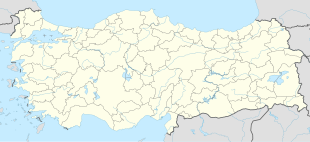2016 Turkish coup attempt
| 2016 Turkish coup d'état attempt | |||||||
|---|---|---|---|---|---|---|---|
| Part of Turkish government–Gülen movement conflict (alleged) | |||||||
|
|||||||
| Belligerents | |||||||
Alleged support:
|
|
||||||
| Commanders and leaders | |||||||
|
|
||||||
| Strength | |||||||
|
|
||||||
| Casualties and losses | |||||||
| 24–104 putschists killed, 1 UH-60 helicopter shot down (alleged) 22 die in prison |
67 pro-government forces killed (62 police officers and 5 loyal soldiers) | ||||||
|
179 civilians killed |
|||||||
Coup failed
Alleged support:
![]() 65th government of the Republic of Turkey and loyal state institutions
65th government of the Republic of Turkey and loyal state institutions
179 civilians killed
270–350 killed and 2,185 wounded overall
After the end of the coup:
15,846 detained(10,012 soldiers, 1,481 judiciary members), of which 8,133 were arrested
48,222 government officials and workers suspended
On 15 July 2016, a coup d'état was attempted in Turkey against state institutions, including, but not limited to the government and President Recep Tayyip Erdoğan. The attempt was carried out by a faction within the Turkish Armed Forces that organized themselves as the Peace at Home Council. They attempted to seize control of several key places in Ankara, Istanbul, and elsewhere, but failed to do so after forces loyal to the state defeated them. The Council cited an erosion of secularism, elimination of democratic rule, disregard for human rights, and Turkey's loss of credibility in the international arena as reasons for the coup. The government accused the coup leaders of being linked to the Gülen movement, which is designated as a terrorist organization by the Republic of Turkey and led by Fethullah Gülen, a Turkish businessman and cleric who lives in Pennsylvania. Erdoğan accuses Gülen of being behind the coup—a claim that Gülen denies—and accused the United States of harboring him. Gülen has suggested the coup was in fact a "self-coup" carried out by Erdoğan to consolidate his grip on power, a belief shared among some analysts and many Turks. Events surrounding the coup attempt and the purges in its aftermath reflect a complex power struggle between Islamist elites in Turkey.
...
Wikipedia

